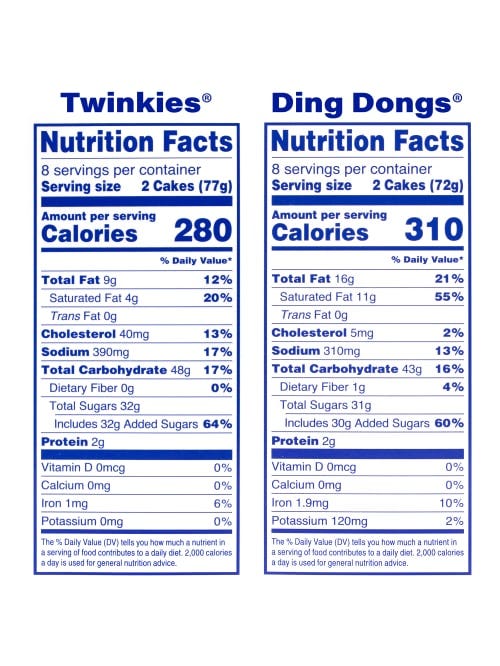SFH #95: Twinkies vs Cauliflower
Fast and slow carbohydrate sources
The summer of 2002 was my first time following a fad diet regiment. I tried out the Atkins diet. I lived on the road working on the Nascar circuit and had plenty of time to learn about food and track every calorie I ate. My go-to meal was usually the 'meatball salad' from Subway. 🤷🏼♂️ They classified anything that didn't end up on their famous bread as a salad. 🤪 Today, I want to break down some science and thoughts on carbohydrates.
If you are not familiar with the Atkins diet, its hallmark was low carbs, high protein, and high fat. And it was not too discriminatory on the latter two.1 While I learned plenty of valuable lessons from following this method, my most valuable education was that almost all plant foods fall into the carbs category. I was indexing my food every day based on the USDA nutritional database.
So when I think about the value of my carbohydrate sources, I break it down into two categories: Twinkies and cauliflower. 😂
Plant foods like cauliflower are typically slow carbs, which means they are low-glycemic and will not spike our blood sugar or insulin. They come packed with nutrients, fiber, and unique molecules called phytochemicals. The phytonutrients readily available in fresh fruits and vegetables — carotenoids, flavonoids, and polyphenols – help improve our health pretty much across the board.2 When we focus on these low-glycemic-load plant foods, our weight normalizes. We feel better without the sugar crashes. We reduce the risk for diseases.
Processed foods with high sugar content like twinkies are fast carbs, which means they are high-glycemic and will spike our blood sugar or insulin. Here are the nutritional facts of Twinkies (and Ding Dongs for fans alike).
The real issue here with most refined foods is the added sugar. We are either getting no nutritional benefit or detrimental results (when overconsumed) in eating added sugar.3
So how do we continue to overconsume foods that are detrimental to our health in the case of Twinkies and Ding Dongs? Eating sugar activates the opiate receptors in our brain.4 It affects the reward center, which leads to our compulsive eating, despite the adverse outcomes like weight gain, hormone imbalances, and more. Every time we get the sweetness 'high,' we reinforce those neuropathways, causing the brain to become increasingly hardwired to crave sugar, building up a tolerance like any other drug.
To put this all in the most simple terms.
Plant carbs = healthy and good. Refined sugar carbs = disease and bad.
Watch Dr. Hyman break down slow carbs and plant foods in just 3 minutes and 16 seconds! 📺
https://www.ncbi.nlm.nih.gov/pmc/articles/PMC6074441/
https://pubmed.ncbi.nlm.nih.gov/25051278/
https://www.health.harvard.edu/heart-health/the-sweet-danger-of-sugar
https://www.ncbi.nlm.nih.gov/pmc/articles/PMC3109725/



